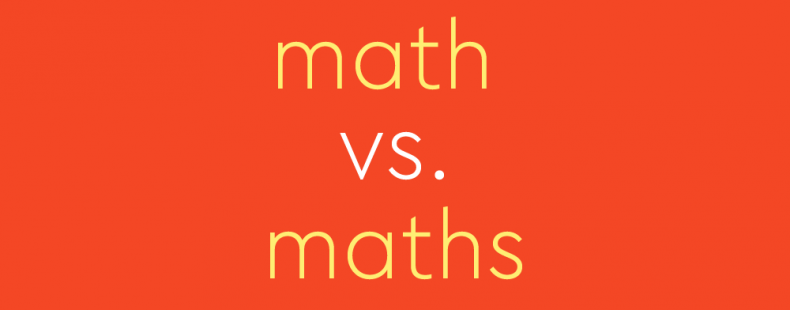If you’ve grown up using the word math, you might be wondering about the word maths, which you’ve probably encountered from time to time. Did you chalk it up to a typographical error or guess that the person using it was just putting on airs? The same goes, of course, if you grew up saying maths. Did math sound awfully odd?
At this point, you may be wondering: is there room for both of these words in our vocabularies? Should you be using maths instead of math in some cases?
The explanation may surprise you—and no, it doesn’t involve any actual math!
What does math mean?
Both math and maths are short for the word mathematics. The word math can refer to either the discipline or subject of mathematics. It can also refer to mathematical procedures. In a sentence like She enjoys studying math and science, the word math refers to the subject or discipline of mathematics. In the sentence She insisted on seeing his math so she could understand his proposal, math refers to actual calculations.
What does maths mean?
Maths has the very same definition as math. If you substitute maths into any of the above examples, the sentences mean the exact same thing. For example: He loves school, but he especially enjoys maths.
How to use math and maths
The only difference between math and maths is where they’re used. Math is the preferred term in the United States and Canada. Maths is the preferred term in the United Kingdom, Ireland, Australia, and other English-speaking places.
There’s no real logical explanation as to why math became preferred in some places while maths was elsewhere. The usual argument goes that mathematics is plural because it ends in an -s, so maths should be its abbreviation. The problem is that, while it ends in an –s, mathematics is a mass noun and usually takes a singular verb (e.g., Mathematics is my best subject).
Both of these words date back to the turn of the 20th century. There are examples of math in writings from the 1840s, and of maths from the 1910s.
Other differences between British and American English
In some cases, British and American English use different words for the same concept. For example, American English speakers use the words truck, shopping cart, and sweater; British English speakers say lorry, trolley, and jumper to mean the same things.
In other cases, the differences between British and American English words are much more subtle. For instance, American English uses the term racecar, while British English uses the word racing car.
In still other cases, British and American English words differ by just one letter, as in the case of math and maths. British English includes U in the spelling of French-derived words, such as colour or favourite, which American English omits.
This also happens with the words sport and sports. In American English, you’d say, “I enjoy playing sports, and I also like watching sports.” In British English, this sentence would be “I enjoy playing sport, and I also like watching sport.” This time, it’s American English that likes the –s!














